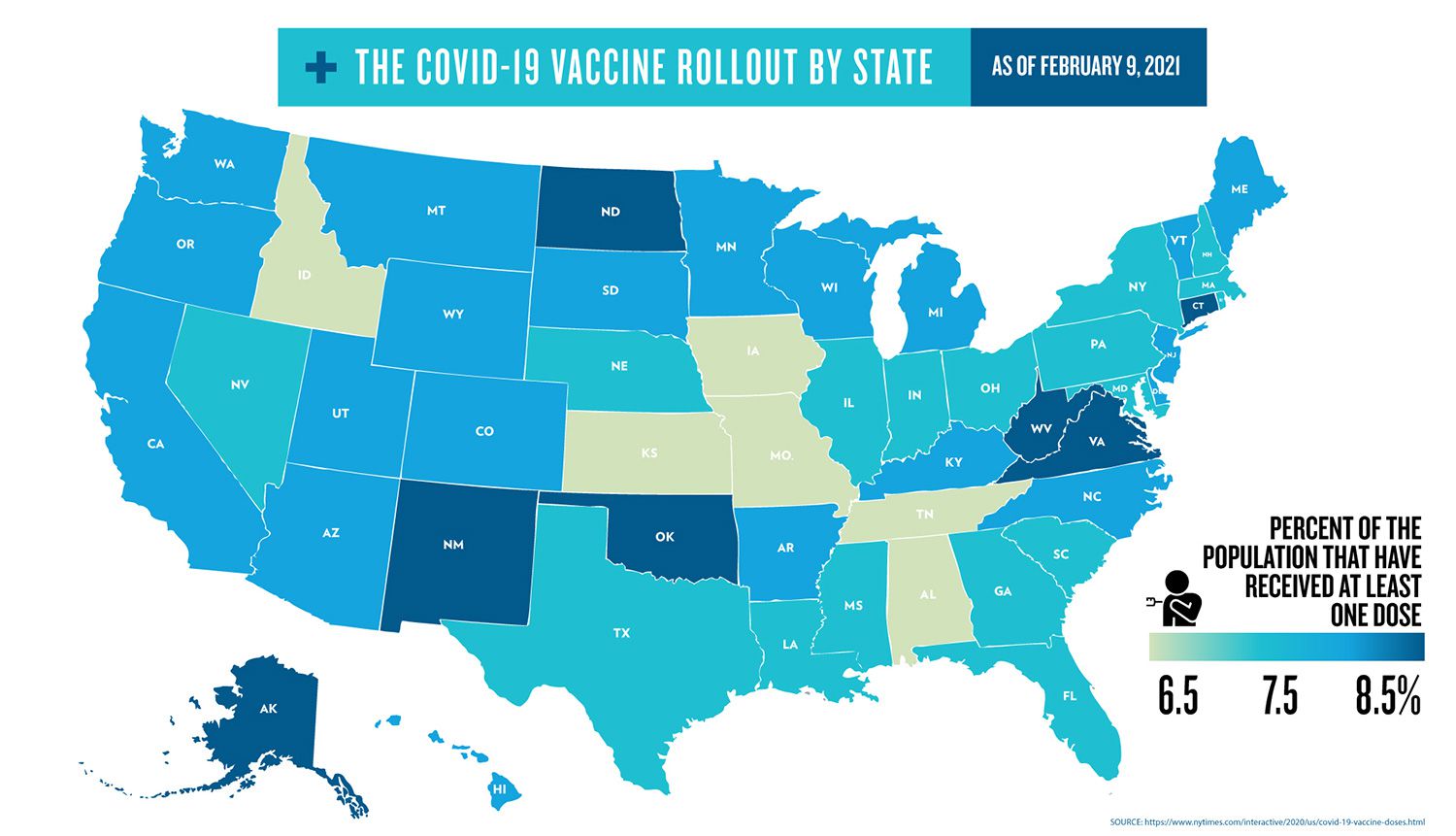
Around 1 in 10 Americans have now received at least one dose of a COVID-19 vaccine, according to data from the Centers for Disease Control, and more than 9,840,000 have been fully vaccinated.
That number is a sign of continuing progress with COVID-19 vaccine distribution, though the country is still struggling with supply issues as states wait on more doses and vaccine appointments immediately fill up.
As of Feb. 9, at least 43,206,190 doses have been administered, with 32,867,213 Americans receiving at least one dose of either Pfizer or Moderna's two-dose regimen, according to the CDC. Another 9,840,429 Americans have now received two doses, and 14 days after that second shot they will reach their peak immunity against COVID-19.
In the last few weeks since President Joe Biden took office, the vaccination rate has gone up significantly, in part to meet his goal of administering 100 million doses during his first 100 days. On average, around 1.49 million vaccine doses are administered a day, an increase from last week when the average was 1.33 million.
But when the Biden administration took office, they discovered that there was no reserve of vaccine doses left from the Trump administration. In the weeks since, they have been working with Pfizer and Moderna to secure more doses, but it will take time.
"We're in a situation, and we will be for a little while, of undersupply," Andy Slavitt, a senior White House advisor working on the COVID-19 response, said, according to CNN.
However, on Tuesday the Biden administration announced that they will soon be able to increase the amount of doses going out to states, territories and tribes to 11 million a week, which should increase the vaccination rate.
Many states have started to expand eligibility for the vaccine from health care workers and people over 65 to include people aged 16 and up with preexisting health conditions like asthma or cancer, and places like New York are now allowing restaurant workers to get vaccinated.
Meanwhile, after months of record-breaking numbers of daily infections, new cases are finally on the decline, dropping 35% over the last two weeks to an average of 108,144 a day, according to The New York Times. Still, that number is nearly double the case totals from the past spike over the summer, and three times that of the initial rise in infections at the start of the pandemic.
And with three new, faster-spreading strains of the virus now present in the U.S., Dr. Anthony Fauci, the director of the National Institute of Allergy and Infectious Diseases and chief medical advisor to President Joe Biden, warned Americans not to get "complacent" and to continue following safety precautions like social distancing and mask-wearing.
Fauci is also urging people to get vaccinated to stop more COVID-19 mutations from emerging.
"You need to get vaccinated when it becomes available as quickly and as expeditiously as possible throughout the country," he said in a press briefing on Monday. "And the reason for that is … viruses cannot mutate if they don't replicate. And if you stop their replication by vaccinating widely and not giving the virus an open playing field to continue to respond to the pressures that you put on it, you will not get mutations."
The makers of Pfizer and Moderna have said that their vaccines will be effective against the newly emerging COVID-19 strains, but the effectiveness may be slightly diminished, particularly with the strain that first emerged in South Africa.
Fauci also said that people who have already had COVID-19 still should get the vaccine, particularly with the South Africa strain.
"If it becomes dominant, the experience of our colleagues in South Africa indicate that even if you've been infected with the original virus that there is a very high rate of reinfection to the point where previous infection does not seem to protect you against reinfection," Fauci said on CNN.
Source: Read Full Article
